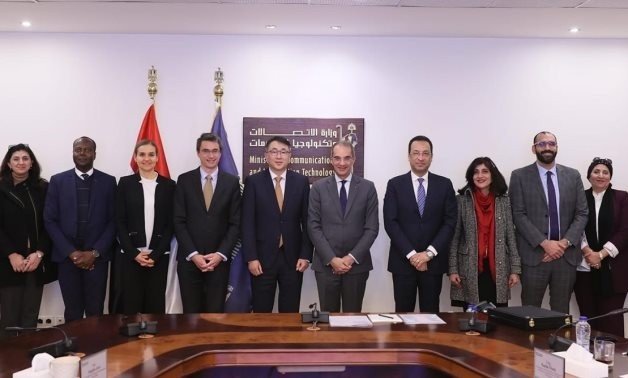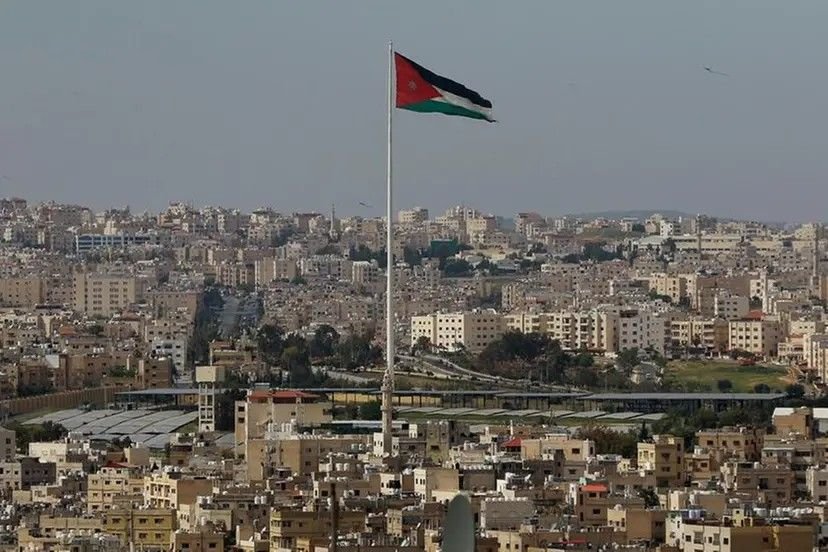Amr Talaat, Egypt’s Minister of Communications and Information Technology, met with Sangboo Kim, Vice President of the World Bank for Digital Transformation, and his delegation to discuss future cooperation in digital transformation, infrastructure development, digital awareness, and skills training.
Kim’s visit, which took place from December 17 to 19, aimed to explore Egypt’s progress in digital transformation and the development of data centers. The meeting continued efforts to strengthen collaboration between Egypt’s Ministry of Communications and Information Technology and the World Bank.
During the meeting, Talaat shared Egypt’s strategies to achieve the goals outlined in its digital strategy, focusing on advancements in digital transformation across various sectors through technology. He emphasized the digitization of government services, boosting youth employment through digital skills, and fostering innovation and entrepreneurship. Talaat also mentioned ongoing initiatives to encourage citizens to adopt digital platforms.
Talaat highlighted key enablers of Egypt’s digital strategy, including the establishment of a legislative framework for governing the communications and IT sectors. The government is working on developing laws related to artificial intelligence and data exchange while also investing in expanding digital infrastructure. Projects such as the installation of fiber-optic cables across the country and replacing outdated copper cables with more efficient fiber-optic technology were also discussed.
The Minister further elaborated on the Ministry’s efforts to improve internet access and services in rural areas through the “Haya Karima” initiative. This program aims to provide high-speed internet, improve postal services, develop mobile towers, and raise digital awareness. Another priority is increasing digital literacy among youth to help them access job opportunities.
Kim praised Egypt’s integrated digital transformation strategy, noting its alignment with the World Bank’s approach to reducing the digital divide. He recognized Egypt’s comprehensive digital ecosystem, which includes digital services, data governance, capacity building, and support for entrepreneurship. He also expressed interest in expanding collaboration with Egypt, particularly in rural areas covered by the “Haya Karima” project.
Kim emphasized the importance of sharing Egypt’s digital transformation experiences with other countries and leveraging the nation’s expertise to help others achieve their digital goals.
Silvia Solf, Director of Digital Transformation Practices at the World Bank for the Middle East and North Africa, elaborated on the Bank’s focus on accelerating digitization, offering technical assistance for digital services, promoting green transformation, and developing data centers.
The discussions also centered on expanding digital infrastructure, particularly internet access in rural areas and villages covered by the “Haya Karima” initiative. This would enable citizens to better access government services and participate in the digital economy by providing job opportunities through online platforms.
The meeting highlighted the successful outcomes of the collaboration between Egypt and the World Bank, including the completion of technical assistance programs for public data governance and real estate asset management.
Egyptian attendees included Raafat Hendy, Deputy Minister for Technological Infrastructure and Digital Transformation; Sherine El-Gendy, Assistant Minister for Strategy and Implementation; Mahmoud Badawi, Minister’s Advisor for Digital Transformation; Ambassador Khaled Taha, Minister’s Advisor for International Relations; and Samah Aziz, Supervisor of the Central Administration for International Relations. The World Bank delegation included Stefan Gemmert, Country Director for Egypt, Yemen, and Djibouti; Zaki Khouri, Senior Specialist in Digital Development; Afouda Leon Biyao, Program Manager; and Dalia Shihata, Senior Executive Assistant.















